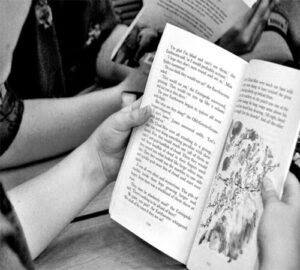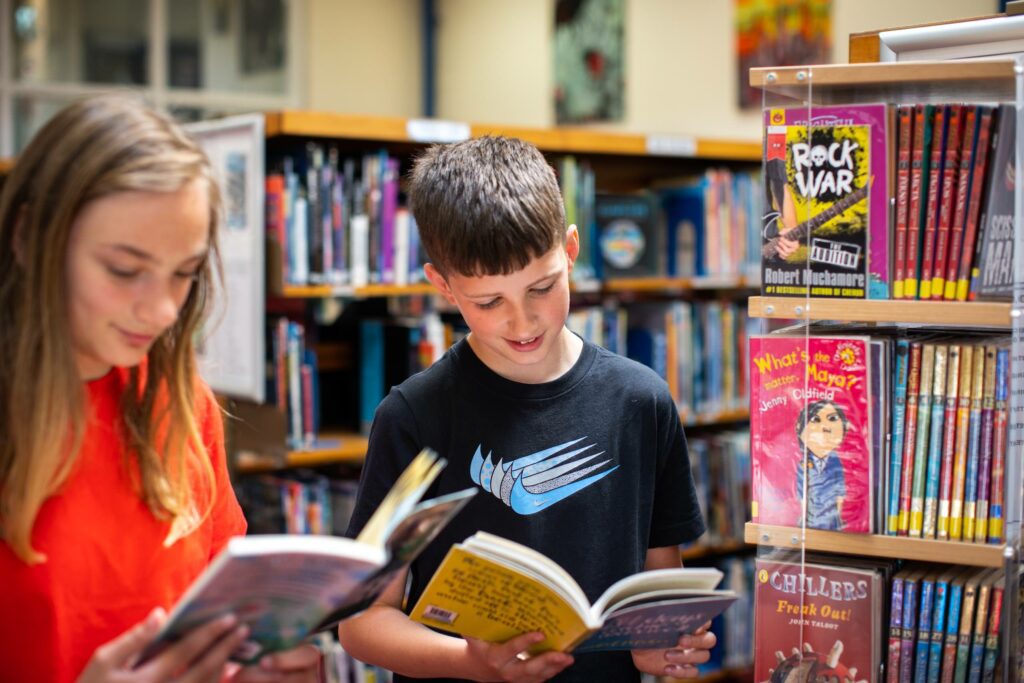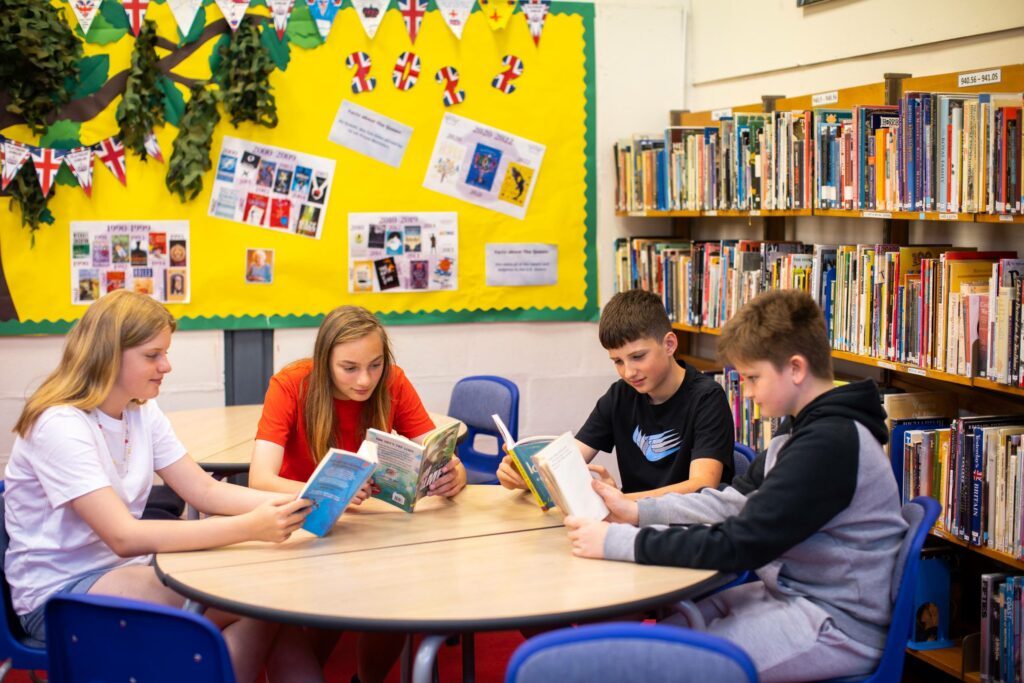A Level English Literature
Examination Board: AQA
Course Code: 7712
Let your imagination run free as you immerse yourself in different worlds – then explain to people what you found there.
Following AQA’s specification, students will study a wide range of texts and forms from across time. Following the theme of Love Through the Ages in Year 12, the course content covers poetry, prose and drama, including a key Shakespeare play. Year 13 focuses on Literature of the Modern Times and explores key themes such as identity, gender and racial discrimination. Texts studied include Owen Sheers’ Skirrid Hill, The Help by Kathryn Stockett and A Streetcar Named Desire by Tennessee Williams. Students are also required to complete Non-Exam Assessment, which gives them the flexibility to choose their own texts and focus to produce a 2500 word essay. A New-Historicist approach underpins the course to help students understand how context has influenced literature and critical reception.
A Level Assessment:
Paper 1: Love through the ages (40%)
A 3 hour examination composed of 3 sections:
Section A: Shakespeare: one passage-based question with linked essay
Section B: Unseen poetry: compulsory essay question on two unseen poems
Section C: Comparing texts: one essay question linking two texts studied – one poetry and one prose
Paper 2: Texts in shared contexts (40%)
Option 2B: Modern times: literature from 1945 to the present day
A 2.5 hour written examination composed of 2 sections:
Section A: Set texts. One essay question on set text
Section B: Contextual linking: analysis of an unseen extract relating to modern literature and a comparison of two studied texts
Non–Examination Assessment: one extended essay (2500 words) and a bibliography (20%)
Assessment Plan
Assessment in Year 12 and 13 is completed at regular intervals. In Year 12, the study of set texts including ‘Othello’, a pre-1900 Poetry Anthology and ‘The Great Gatsby’ afford opportunities for assessment each half term. In Year 13 assessment comprises of exam tasks relating to the modern literature texts studied, and the Independent Study essays undertaken by students across the course of the year. In addition to this, mock examinations take place in both years to assist students’ knowledge regarding the format and assessment of the examinations. Grading is shared with the students across the course and next step targets are given to ensure students know how to improve in line with the examination mark scheme.
Are you interested in
– Developing your analytical skills
– Learning to write extended essays
– Increasing your insight into human nature
– Increasing your empathetic skills
Leading to a career in
– The Media
– Teaching
– Almost anything – many organisations see a qualification in English as a sign that you are able to master a wide range of skills.
“Literature adds to reality, it does not simply describe it. The more I read, the more I want to read”.


